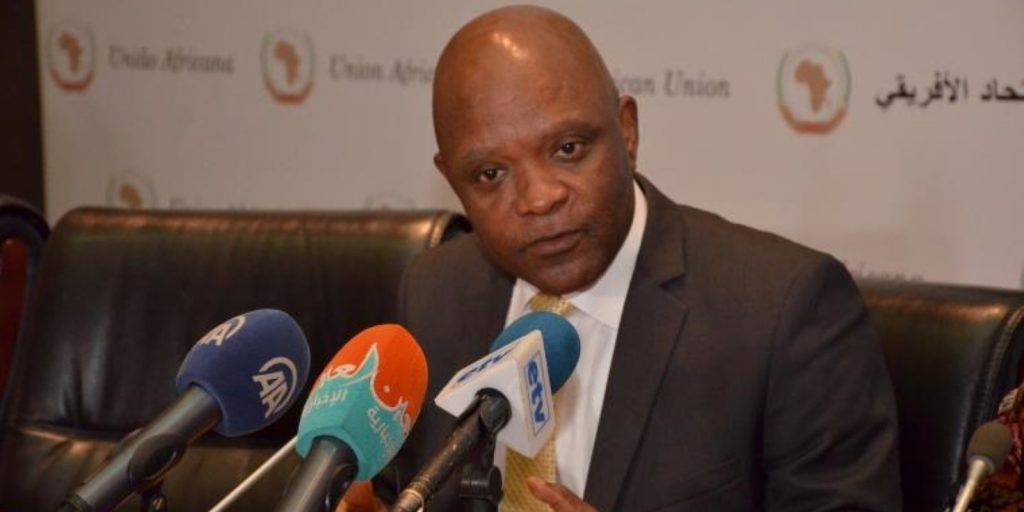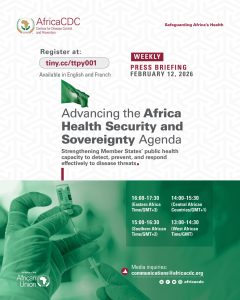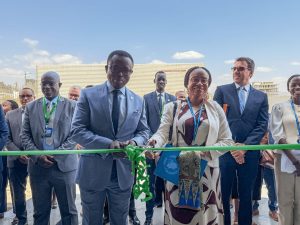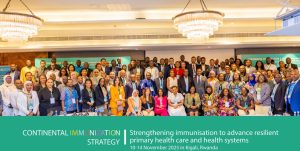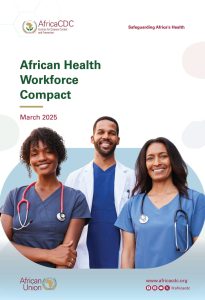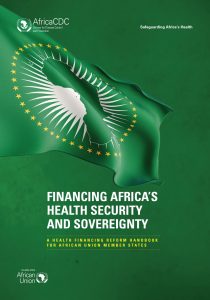The African Union (AU) is to deploy more members of the African Voluntary Health Corps (AVoHC) to support the response to the Ebola virus disease outbreak in the Democratic Republic of Congo (DRC), the second largest outbreak in the history of Ebola since it was discovered in 1976.
In a briefing to the media Dr John Nkengasong, the Director of the African Union’s Africa Centres for Disease Control and Prevention (Africa CDC) confirmed that the AU will re-activate the African Voluntary Health Corps and deploy them not just in the DRC but also in other countries within the region. The decision to increase the number of volunteers is in response to the declaration by the WHO, categorising the outbreak as a public health emergency of international concern (PHEIC).
“This is a declaration that is issued when an event is extraordinary, serious and has a potential to cross beyond the country where it is and have a regional or international effect from the public health perspective. It is an important declaration because it changes the way the Africa CDC will support the Democratic Republic of Congo to respond to this outbreak,” said Dr Nkengasong.
Africa CDC has been supporting response efforts in the DRC since August 2018 and already has 41 experts deployed in the field, some of whom are members of AVoHC. “AVoHC is a group of volunteers that we deployed effectively in West Africa to respond to the outbreak that occurred in 2014 to 2015, they will also be very useful in the current outbreak” said Dr Nkengasong.
Insecurity and attacks on health centres and health providers has been a major challenge to response efforts in the affected provinces. The African Union will be engaging with the United Nations security system to improve security for deployed experts and facilities so that response efforts can continue without interruptions.
Dr Nkengasong further added that following a briefing to the leadership of the African Union Commission the Africa CDC will also engage the AU Peace and Security Council and the Permanent Representatives Committee of the African Union. “We will be working with the Government of the DRC very closely to better coordinate our efforts with other partners like the WHO”, he added.
Other plans to strengthen response include the procurement and provision of additional equipment and supplies, strengthening cross-border surveillance and laboratory systems, and a new approach to risk communication and awareness-raising at the community level.
About the African Voluntary Health Corps (AVoHC)
AVoHC is a team of 800 epidemiologists, anthropologists, as well as communication, laboratory and logistics experts, from different African countries who are on standby for emergency deployment. Many of them have been trained and are ready to be deployed anywhere within the continent.
Africa CDC interventions in the DRC Ebola epidemic to date:
- 41 experts are deployed in the theatre of response.
- Trained over 800 local health care workers and community volunteers.
- Supported the government of the DRC with 3,000 laboratory cartridges for use in detecting Ebola.
- Set up 6 laboratories fully supported and run by Africa CDC staff members.
- Trained 469 health care workers, traditional healers and teachers in infection prevention and control.
- Supplied personal protective equipment in 13 health centers and hospitals.
- Trained 350 people in port of entry screening in partnership with the Ministry of Health, with a cumulative total of 770 alerts that have been followed up and tracked at different points.

